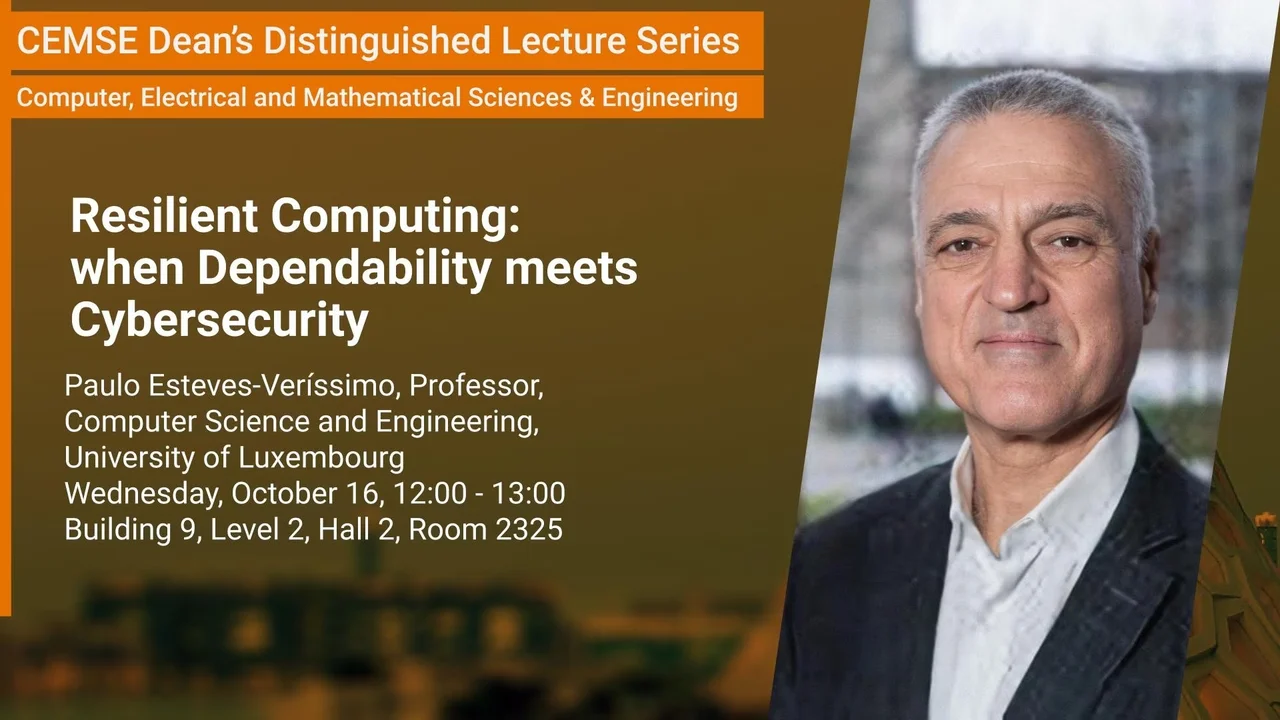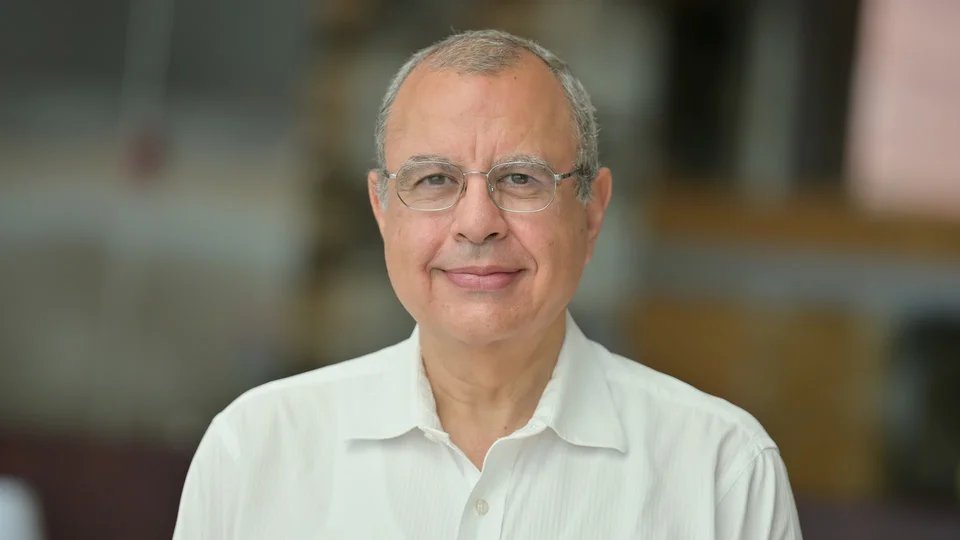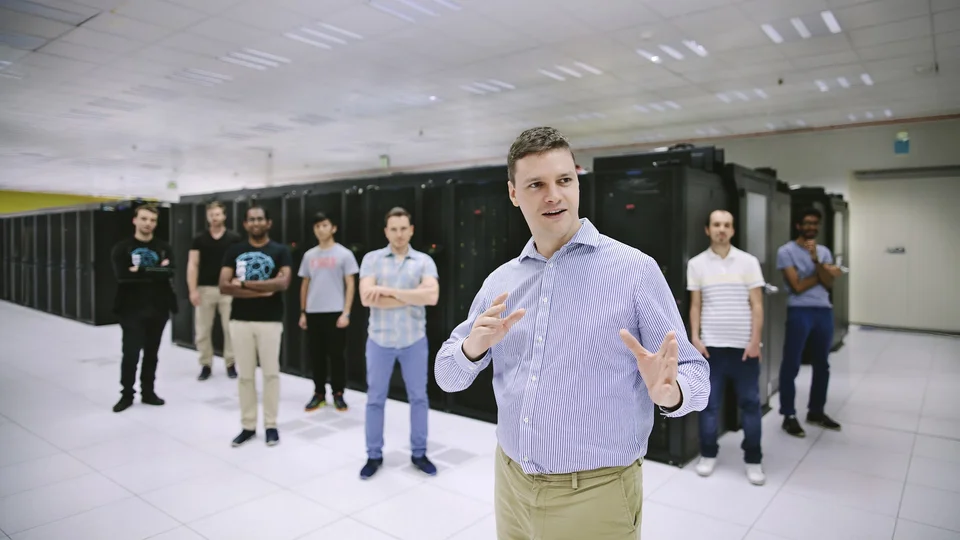
Resilient Computing: when Dependability meets Cybersecurity
Computing and communications infrastructures have become commodities that transact huge quantities of data and are pervasively interconnected, inside countries, and worldwide. Modern societies largely depend on them.
Overview
Lecture Video
View on KAUST webcast https://webcast.kaust.edu.sa/Mediasite/Play/f4cedff6d1b74cab9ea9e1d79a43da0d1d
Abstract
Computing and communications infrastructures have become commodities that transact huge quantities of data and are pervasively interconnected, inside countries, and worldwide. Modern societies largely depend on them. However, there is a mismatch between the protection effectiveness of current industry technologies, and the power of today’s threats, like targeted attacks or advanced persistent threats.
The impending risk is thus a grand challenge, which deserves grand solutions. In this talk, I will discuss the foundations of Resilient Computing, drawing from the fusion between dependability and security, understanding the need to automatically and simultaneously fight against cyber-attacks, accidental faults, design errors, and unexpected operating conditions. Resilience aims at providing protection in an incremental, dynamic, and adaptive way, seeking unattended and sustainable operation. The power of the paradigm is illustrated by several application areas where my lab CritiX has achieved successful solutions: SDN, autonomous vehicles, digital health, and blockchain.
Brief Biography
Paulo Esteves-Veríssimo is a Professor and FNR PEARL Chair at the University of Luxembourg (UL), and head of the CritiX research group at UL's SnT Centre (http://wwwen.uni.lu/snt). He is an adjunct Professor of the ECE Dept. of CMU (USA). Veríssimo is a Fellow of IEEE and of ACM. He is past Chair of the IFIP WG 10.4 on Dependable Computing and Fault-Tolerance and past vice-Chair of the Steering Committee of the DSN conference. He is also an associate editor of the IEEE Transactions on Emerging Topics in Computing.
Esteves-Veríssimo is a member of the Scientific Board of the Portuguese National Cybersecurity Center (CNCS-PT) and has an extensive record as a project team leader in several EU projects, and of collaboration with large corporations, institutions, and public administration bodies, in projects, audits and consulting in resilience, dependability, and cybersecurity.
He is interested in resilient, secure and dependable distributed architectures, middleware and algorithms for the resilience of large-scale systems and critical infrastructures, privacy, and integrity of biomedical and blockchain data, security and safety of real-time networked embedded systems. He is the author of over 200 peer-refereed publications and co-author of 5 books.

